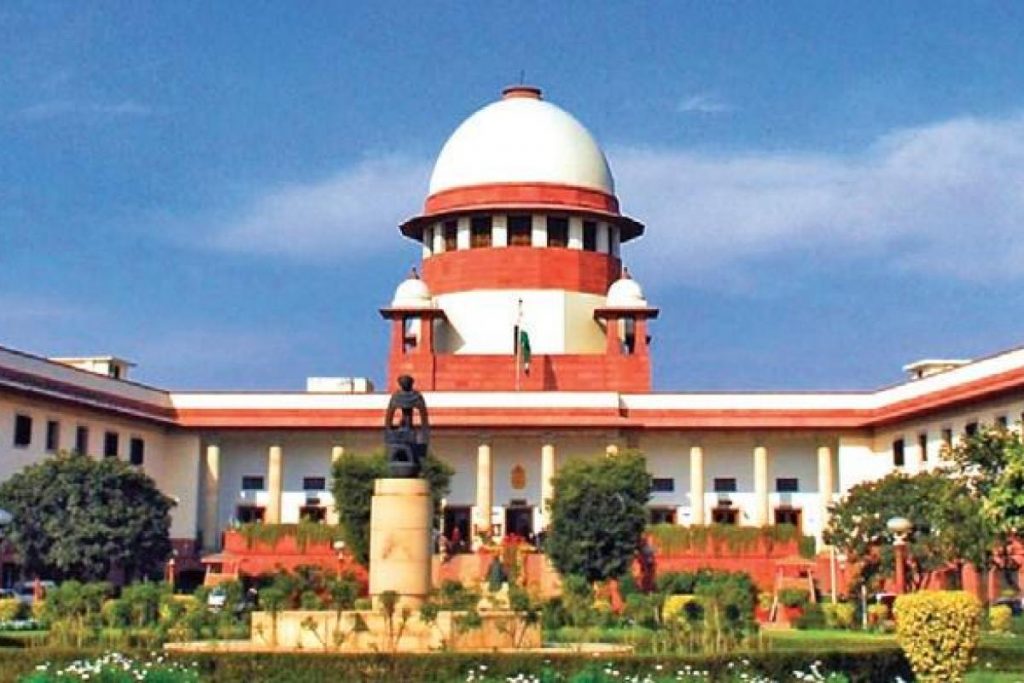Manas Dasgupta
NEW DELHI, June 29: Providing a great relief to the migrant labourers harassed in the on-going Covid pandemic, the Supreme Court on Tuesday directed the states and Union Territories to implement the ‘one nation, one ration card’ scheme by July 31.
The apex court also asked the authorities to run community kitchen to feed the migrants till the pandemic conditions last. It ordered the Centre to provide dry ration for free distribution among migrant workers till the situation eases.
A bench of Justices Ashok Bhushan and M R Shah had on June 11 reserved its judgment on pleas of activists Anjali Bharadwaj, Harsh Mander and Jagdeep Chhokar seeking the implementation of welfare measures for migrant workers hit hard again by the curbs imposed during the second wave.
The bench had said the ration scheme was for welfare of poor citizens as it allowed migrant workers to get ration at the place of their work in other states as well where their ration cards are not registered. The bench directed the Centre to develop a portal with the help of the National Informatics Centre (NIC) for registration of unorganised sector workers for granting them the benefits of welfare schemes by July 31.
The state governments and the UT administrations shall bring a scheme to provide dry ration to migrant workers by July 31 and such a scheme will remain till COVID situation continues, the top court said. The bench directed states and UTs to register all establishments and contractors under the Inter-state Migrant Workmen (Regulation of Employment and Conditions of Service Act) 1979.
On May 24, the top court had said the process of registration of unorganised workers was “very slow” and had directed authorities to provide dry ration and make operational community kitchens for migrant workers stranded throughout the country.
Referring to the resurgence of Covid-19 infections and consequent curbs, the activists have said in their plea that the problems faced by migrant workers during the lockdown in 2020 have persisted over the past year due to the continued economic distress, and have now got aggravated on account of fresh restrictions, curfews and lockdowns being imposed in many states to control the spread of Covid.
- “The one nation, one ration card” system aimed at providing ration and food security to migrant workers and their families under the National Food Security Act (NFSA) and other schemes.
The scheme was launched on a pilot basis in four states in 2019 by the then union food minister late Ram Vilas Paswan. It was one of the four citizen-centric reforms identified by the department of expenditure under the Union finance ministry. The department has also allowed additional borrowing of 0.25 per cent of Gross State Domestic Product (GSDP) to states completing the implementation of the system, which translates to additional borrowing permission of ₹37,600 crore.
The additional borrowing limit of 0.25 per cent is only allowed to states after completion of both the actions — Aadhaar seeding of all the ration cards and beneficiaries in the state and automation of all the Fair Price Shops (FPSs) in the state. The automation and Aadhaar seeding is to ensure seamless inter-state portability of the card and also helps eliminate bogus or ineligible cardholders.
Binging big advantages to the migrant labourers who often moved from place to place, the tech-driven ‘One Nation, One Ration Card’ system allowed labourers, daily wagers, urban poor like rag pickers, street dwellers, temporary workers and others in both the organised and unorganised sectors, domestic workers, etc to get their daily quota of food grains from any electronic point of sale (e-PoS)-enabled FPS of their choice anywhere in the country.

